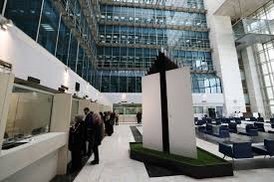Iraq is intensifying its efforts to combat a flourishing black market for currency by significantly increasing overseas dollar transactions through the official global SWIFT system, according to the Central Bank’s vice governor on Monday.
The dominance of dollars in Iraq’s economy has prompted Baghdad to impose a series of restrictions on the use of American currency within the country. Additionally, at the end of 2022, the country’s banking sector adopted the international financial messaging system, SWIFT, as part of its reforms aimed at combating money laundering and ensuring compliance with international sanctions.
Despite Iraq’s abundant foreign currency reserves exceeding $100 billion (92 billion euros), experts point to factors such as tax evasion, the flourishing black market, and dollar smuggling, particularly to entities facing United States sanctions like neighboring Iran, as driving forces behind the increased demand for foreign currencies.
Transactions facilitated through the Central Bank’s electronic platform, which guarantees compliance with SWIFT standards, have witnessed a significant surge, as revealed by the bank’s vice governor, Ammar Khalaf, in a statement to AFP. Khalaf noted that many foreign trade transactions are now being executed via the platform, with daily transactions soaring from $50 million at the beginning of 2023 to approximately $200 million, aligning with the scale of Iraq’s economy.
In order to access dollar reserves held in the United States, Iraqi banks are required to conduct transfers through the electronic system, with requests subject to scrutiny by the US Federal Reserve. Khalaf remarked that recent reductions in rejection rates indicate an improved understanding among banks regarding international requirements for currency transfers.
Despite these efforts, the black market for currency continues to thrive, with the official exchange rate set by the government at 1,320 dinars to the dollar, contrasting sharply with unofficial market rates reaching 1,470 dinars per dollar.
Iraq’s commercial ties with Iran, coupled with considerable political influence wielded by Tehran in Baghdad, present additional challenges. Prime Minister Mohamed Shia al-Sudani acknowledged last year that sanctions hindering dollar transfers to Iranian banks have driven Iraqi traders towards the black market.
In response, the Iraqi government announced measures in late November to incentivize importers to utilize official channels for obtaining dollars, targeting goods such as cigarettes, cars, gold, and mobile phones.

